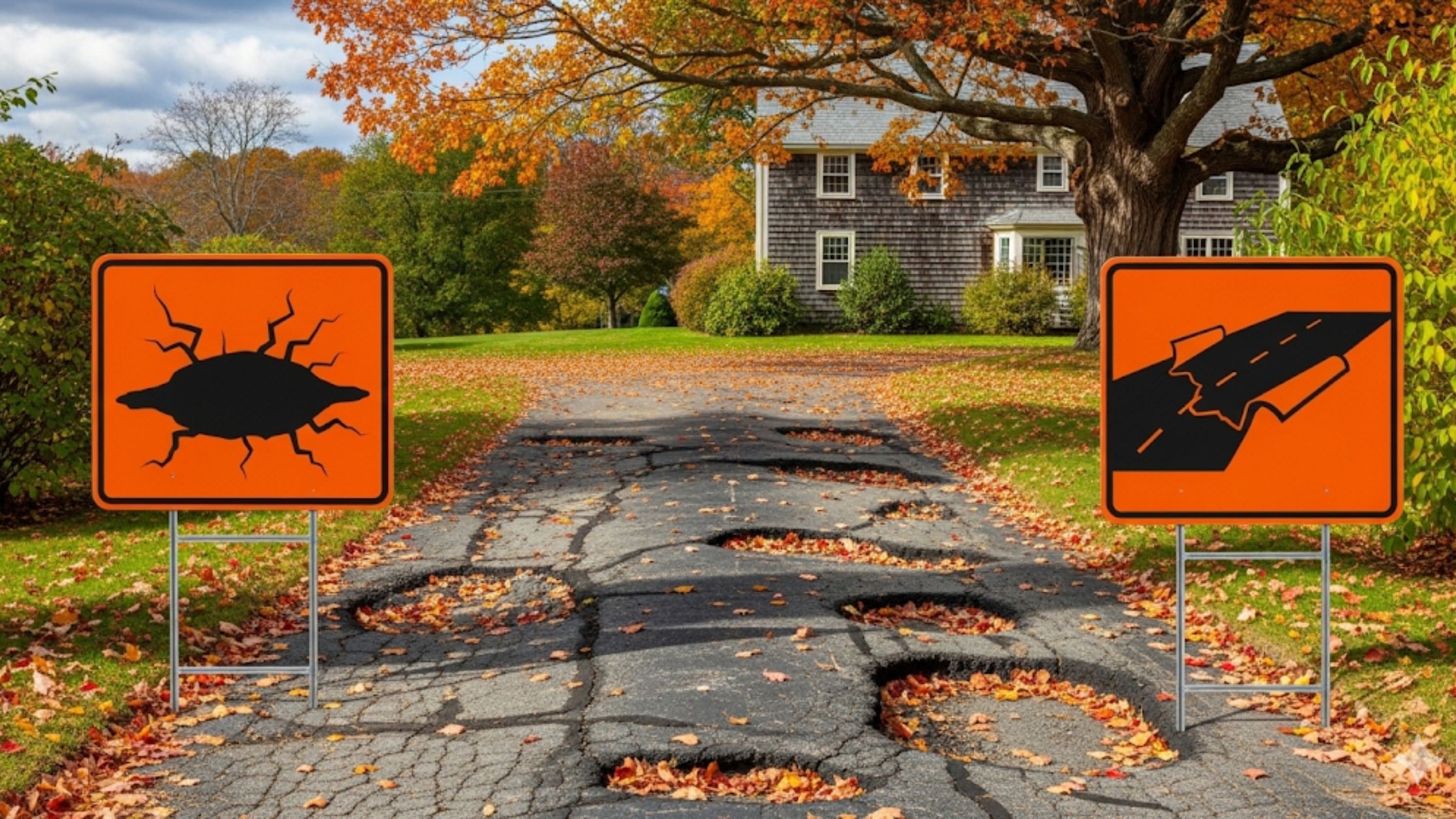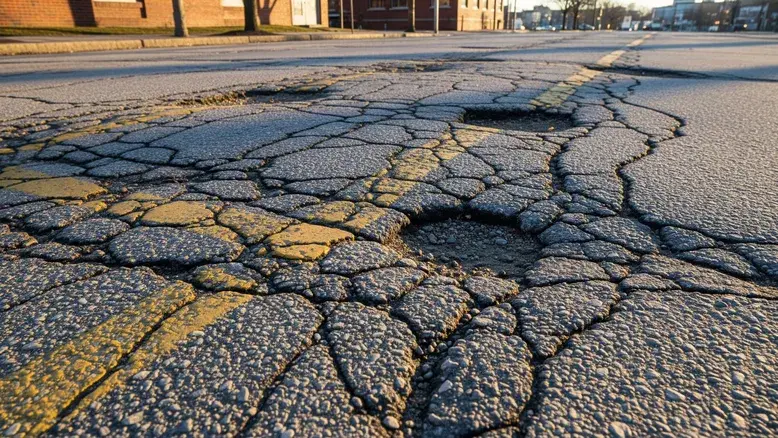Maintaining a pristine driveway in New England requires more than occasional sweeping and snow plowing. Asphalt sealcoating services offer a proactive solution to protect surfaces from harsh weather, UV radiation, oil stains, and everyday wear. In Massachusetts, where freeze-thaw cycles and coastal humidity accelerate pavement deterioration, sealcoating asphalt is essential for extending pavement life and preserving curb appeal.
Driving on a freshly sealcoated surface showcases rich, uniform color and smooth texture. Beyond aesthetics, sealcoating fills microscopic pores, prevents water infiltration, and creates a barrier against petroleum-based spills. For homeowners and property managers in Massachusetts, understanding the benefits of sealcoating asphalt and selecting the right provider ensures a sound return on investment.
Understanding Asphalt and the Massachusetts Climate
Asphalt pavement consists of aggregate (crushed stone, sand) bound together by a bituminous binder. The material’s porosity allows water and chemicals to penetrate, leading to oxidation, cracks, and potholes over time.
Massachusetts experiences:
- Four distinct seasons, including harsh winters and humid summers
- Freeze-thaw cycles that expand water in cracks, causing pavement heaving
- UV exposure in summer that degrades bitumen, leading to surface oxidation
Regular sealcoating slows oxidation, repels water, and mitigates freeze-thaw damage. By sealing the top layer, it preserves underlying aggregate and binder integrity, ensuring a longer pavement life.
What Is Sealcoating?
Sealcoating involves applying a protective emulsion or coal tar-based coating to asphalt pavement. Common materials include:
- Petroleum-based emulsions: water-resistant and flexible
- Coal tar sealant: highly durable and resistant to oils and gasoline
- Polymer-modified sealers: enhanced adhesion and UV stability
A well-formulated sealant contains polymers that bind tightly to the pavement, filling surface voids and creating a wear-resistant film. This film shields against:
- Water intrusion
- Oil and fuel spills
- UV radiation
- Abrasive traffic wear
Using quality sealant and proper application techniques ensures maximum durability and performance.
Benefits of Sealcoating Asphalt
Sealcoating asphalt delivers multiple advantages:
- Extends pavement lifespan by up to 50%
- Prevents water infiltration and freeze-thaw damage
- Protects against oil, gas, and chemical spills
- Restores deep black color and smooth texture
- Enhances skid resistance for safety
- Reduces maintenance and repair costs over time
Understanding why sealcoating is essential helps property owners prioritize this maintenance task and avoid costly repaving projects down the road.
Why Sealcoating Is Essential
Regular sealcoating is a cost-effective measure that addresses surface wear before it becomes structural damage. Key reasons to sealcoat include:
- Oxidation Prevention Asphalt binder oxidizes under UV exposure, becoming brittle and prone to cracking. Sealant blocks harmful rays.
- Moisture Shield Sealed surfaces repel water, stopping it from penetrating and expanding within cracks during freezing temperatures.
- Chemical Resistance Coal tar and polymer-modified sealers resist petroleum and deicing chemicals that would otherwise weaken pavement.
- Appearance A uniform black finish boosts property value and delivers a welcoming first impression.
By investing in sealcoating early—typically within the first year of asphalt installation—owners maximize protection. Subsequent sealcoat applications every two to four years maintain that defense.
Choosing the Right Asphalt Sealcoating Services
Selecting an experienced contractor ensures proper surface preparation, high-grade materials, and professional application. Experts look for:
- Industry certifications and manufacturer endorsements
- State-of-the-art equipment for cleaning and application
- Proven track record in Massachusetts climate conditions
Locally owned providers bring advantages in response time and regional expertise. For an established partner in quality sealcoating, homeowners often rely on The SealCoating Guys for tailored service plans, transparent pricing, and long-term warranties.
DIY vs. Professional Sealcoating
Homeowners sometimes consider tackling sealcoating themselves to save on labor costs. While DIY kits are available, professional sealcoating delivers superior durability, uniformity, and labor efficiency.
For those weighing the options, the long-term performance of professional sealcoating often outweighs the initial cost difference. Homeowners should review the pros and cons in our DIY vs. Professional Sealcoating overview before deciding.
The Sealcoating Process in Massachusetts
A typical professional sealcoating project follows these steps:
- Surface Assessment Inspect for cracks, potholes, oil stains, and drainage issues. Identify alligatored or heavily oxidized areas.
- Cleaning and Preparation Use industrial sweepers and power washers to remove debris, dirt, mold, and tree sap. Ensure full adhesion.
- Crack Filling and Repairs Apply hot rubberized crack sealant to prevent water intrusion. Patch potholes with cold or hot asphalt mix.
- Priming (if needed) In heavily polished traffic lanes, apply a bonding primer to enhance sealant adhesion to aggregate.
- Sealant Application Spray or squeegee one to two coats of emulsion or coal tar sealer. Maintain uniform film thickness.
- Curing and Striping Allow 24–48 hours of dry conditions before permitting traffic. Repaint striping for parking areas.
Proper scheduling avoids rain delays and extreme temperatures. Spring through early fall offers the ideal weather window in Massachusetts.
Maintenance Tips After Sealcoating
Once sealcoated, following good maintenance practices preserves the surface:
- Restrict traffic for at least 24 hours—longer in shaded or cool areas
- Avoid oil or chemical spills; clean spots immediately
- Sweep regularly to remove abrasive grit and debris
- Inspect the surface annually; address new cracks swiftly
Frequent upkeep between sealcoat cycles ensures maximum longevity and sustained aesthetic appeal.
Cost Considerations and Return on Investment
Sealcoating asphalt typically costs between $0.10 and $0.25 per square foot in Massachusetts, depending on site access and required repairs. By comparison:
Regular sealcoating reduces the need for costly resurfacing or full replacement. For property managers and homeowners, this preventive strategy yields significant savings and extends pavement life.
Finding Local Driveway Sealcoating in Massachusetts
Massachusetts property owners benefit from local contractors who understand regional climate challenges. When searching for driveway sealcoating services in Massachusetts, consider:
- Reviews and testimonials from neighbors
- Clear, written estimates and scope of work
- Availability of service windows in spring and summer
- Responsiveness and customer service
Checking local references and project portfolios ensures confidence in service quality. For reliable workmanship and timely scheduling, many homeowners choose The SealCoating Guys.
Conclusion
In Massachusetts, proactive pavement maintenance is vital for withstanding harsh winters, heavy traffic, and chemical exposure. Sealcoating asphalt safeguards against water damage, UV degradation, and daily wear while enhancing curb appeal. Whether comparing asphalt sealcoating services or evaluating DIY vs. Professional Sealcoating, partnering with seasoned experts ensures optimal results.
Protecting your driveway or parking lot investment starts with timely sealcoating. For tailored service plans, professional-grade materials, and a commitment to excellence, homeowners and property managers turn to The SealCoating Guys for all their pavement preservation needs.
Frequently Asked Questions
1. How often should a driveway in Massachusetts be sealcoated?
Typically every two to four years, depending on traffic volume and local weather conditions.
2. Can sealcoating repair existing cracks and potholes?
Sealcoating itself does not fill large cracks; proper crack sealing and pothole repair must precede sealcoat application.
3. How long does it take for sealcoat to fully cure?
Under ideal temperatures (50–85°F) and dry conditions, sealcoat cures in 24–48 hours.
4. Is sealcoating effective in freeze-thaw climates?
Yes. By preventing water infiltration, sealcoating minimizes freeze-thaw damage and reduces pavement heaving.
5. Are there environmentally friendly sealcoating options?
Polymer-modified and petroleum-based emulsions have lower VOC content than coal tar sealants, offering greener alternatives.






.webp)

.svg)



